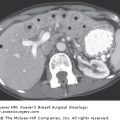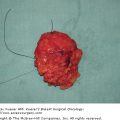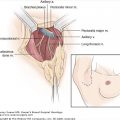Breast cancer investigators must contend with the critical issue of how to fund their trials, including what costs should be included in the budget for a trial. We have divided this chapter into 2 sections: first, a discussion of the various components associated with clinical trials that require funding, and, second, potential funding sources to fund the proposed trial costs.
The costs of a clinical trial include both central costs, related to protocol development and management, as well as the institutional costs, related to the regulatory review and the actual conduct of the trial at participating sites. If a clinical trial is to be conducted at only one location, then all these costs will be incurred at that site. If the trial will take place in multiple locations, then the central and institutional costs will be incurred at different locations.
The guiding text for a trial is the protocol document and associated appendices. Drafting a functional protocol document requires input from a variety of disciplines, including all those treatment modalities used in the trial, as well as biostatistics, nursing, pharmacy, and ancillary clinical disciplines such as pathology and radiology. Wherever possible, investigators should use an appropriate template to streamline the task of developing a new protocol. Model templates are available at the National Cancer Institute’s Cancer Therapy Evaluation Program (NCI CTEP) Web site, as well as through the NCI-sponsored Clinical Trials Cooperative Groups.1 In general, a face-to-face meeting involving representatives of the appropriate disciplines is required to initiate protocol development. Follow-up work may be conducted via e-mail, telephone, and conference calls. The trial budget should include, therefore, the costs of face-to-face meetings, as well as the time of key investigators, biostatisticians, and protocol coordinators.
Before the trial begins, the investigators must also develop case report forms and a system for data collection. This process requires time and potentially money. The requirement for time and money can be lessened by the use of existing case report forms and a data collection system that is already in place. For multi-institutional trials, remote data capture via a secure Web site may prove less time consuming and expensive than the traditional paper-based system in which forms are mailed or faxed to a central location. We also recommend that all case report forms use the standard Common Data Elements, which the NCI and the Clinical Trials Cooperative Groups jointly developed.2 We also encourage the collection of clinical trial data through electronic means using consistent definitions and formats across trials. Compliance with data collection standards and electronic data reporting standards, as developed by 2 international groups, the Clinical Data Standards Interchange Consortium (CDISC) and Health Level 7 (HL7), can further increase clinical trials efficiency and speed up regulatory review.3,4
CDISC and HL7 are the 2 principal groups that have taken on the task of creating clinical-research reporting standards. CDISC has created models to standardize the submission of data to regulators, and HL7 produces standards for clinical and administrative data. To promote interoperability among applications using CDISC or the HL7 standard, the US Food and Drug Administration (FDA), NCI, CDSIC, and HL7 created the Biomedical Research Integrated Domain Group (BRIDG).5 The BRIDG model, released in 2007, has been adopted by the NCI’s Cancer Biomedical Informatics Grid (CaBIG) initiative.6
CaBIG, an open-source, open-access, open-development, and federated platform that facilitates the collection and sharing of standardized data across participating sites, shows great potential for increasing the pace of innovative in cancer treatment. CaBIG offers participants tools that aid clinical trials management, integrate and analyze various types of data, and assure secure data-sharing connections among the NCI-designated cancer centers and 16 community health centers in the network. Of particular interest will be the forthcoming proposed rule for Electronic Submission of Data from Studies Evaluating Human Drugs and Biologics, expected in September 2008 (but still pending as of September, 2009).
Once the protocol document has been finalized, it must be submitted for regulatory review. This review may include the local institutional review board (IRB), in some cases, a central or national IRB, and/or the FDA. In addition, at NCI-designated cancer centers, the protocol must be reviewed by a scientific review committee. Submission of these documents requires additional time and effort on the part of the principal investigator and protocol coordinator at each site. Some sites require that investigators partially defray the institutional costs of protocol and amendment submission. The protocol coordinator at each site must maintain meticulous records documenting approval by the local and/or central IRB of the protocol, amendments, and yearly reviews. For multi-institutional studies, a central coordinating office will also need to confirm regulatory approval at all participating sites. In addition, all investigators participating in a trial sponsored by the NCI or by a pharmaceutical company planning to submit trial data to the FDA must complete and file the FDA 1572 investigator registration form.7 The NCI’s CTEP maintains these forms for CTEP-sponsored trials, including those conducted by the Clinical Trials Cooperative Groups. Certain trials may also require certification of expertise and/or protocol orientation. Examples might include expertise in sentinel lymph node assessment, intensity-modulated radiation therapy (IMRT), and so on. The budget may need to include costs of training and orientation programs, as well as the cost of maintaining a registry of those certified to participate in the trial.
The process of patient registration also requires an investment of time and resources. Certain trials may require verification of eligibility, such as with real-time review of pathology. Budgets for such trials will need to cover the costs of such verification, as well as that of registration and randomization, if required by study design. For large Phase 2 and 3 trials, most trial networks, including the NCI-supported Cooperative Groups, have developed centralized online registration and randomization systems to enable 24-hour availability to the trial by investigators in different time zones.
Trials evaluating novel experimental agents generally require support for a central research pharmacy, the time of research pharmacists, and, for multi-institutional studies, shipment of the experimental agent to participating sites. For trials sponsored by the NCI’s CTEP in which CTEP holds the Investigational New Drug (IND) application for the investigational agent, the NCI’s CTEP maintains the central pharmaceutical repository and ships drugs to participating sites. The NCI core grants to NCI-designated cancer centers may partially support the cost of a research pharmacy.
Many trials now require or encourage collection of slides confirming histologic diagnoses, fixed and/or frozen tumor tissue, serum, whole blood, and other specimens. The budget for multi-institutional trials, therefore, may need to include the costs of preparing and shipping specimen collection kits to participating sites, sites coordinating and obtaining specimens from trial participants, shipping specimens to central tumor banks and/or core laboratories, and central tumor banking activities. The NCI’s Cancer Diagnosis Program partially supports the tumor and specimen-banking activities of the Clinical Trials Cooperative Groups. CTEP and the Clinical Trials Cooperative Groups have jointly developed a guidance document that outlines various correlative science and ancillary studies with suggested payment tiers for such studies.8
In many trials, analysis of specimens collected from patients may be useful for the development and/or validation of diagnostic, prognostic, and predictive markers. Other potential studies may include more research into tumor biology, intermediate biomarkers, pharmacogenomics, pharmacokinetics, and other areas. The NCI’s CTEP supports the cost of some core laboratories through parent grants to the Clinical Trials Cooperative Groups. The NCI has also earmarked funds, available on a competitive basis, to support the costs of correlative science components that are integral to a specific clinical treatment trial. In some cases, for trials sponsored or cosponsored by industry, the industry partner may be willing to support the cost of the correlative science or perform the laboratory analyses in house. Investigator-initiated grants may also be used to support these laboratory analyses. The NCI’s Division of Cancer Treatment and Diagnosis has worked to strengthen collaboration in such correlative scientific analyses between the Specialized Programs of Research Excellence (SPOREs) and Clinical Trials Cooperative Groups. The NCI does sponsor an ongoing program announcement indicating the NCI’s interest in receiving grant applications for correlative science linked to clinical trials.9
Breast cancer investigators also collaborate with a variety of other disciplines interested in studying secondary end points on treatment trials, including aspects of health-related quality of life, health services, epidemiology, psychosocial, and/or behavioral studies. These studies may be either companion studies to or embedded studies within treatment trials, most commonly phase 3 trials, but also some large phase 2 studies. The NCI’s Division of Cancer Prevention (DCP) may assign additional monetary credits for cancer control companion studies of NCI-sponsored phase 3 trials, whether incorporated within the trial or as a stand-alone companion protocol. The NCI has also earmarked funds, available competitively, to support the costs of health-related quality-of-life (HRQOL) components that are integral to a specific clinical treatment trial. Industry may also provides funding for these types of ancillary studies because treatment effects on patient quality of life is now even more important to measure and intervene, given the long-term survival of many patients. The budget for these trials may include the costs for programs to train members of the research team how to use and administer patient surveys and various measurement tools, personnel time to coordinate the additional data collection and quality control, along with the central costs of data collection, statistical analysis, and reporting of results.









